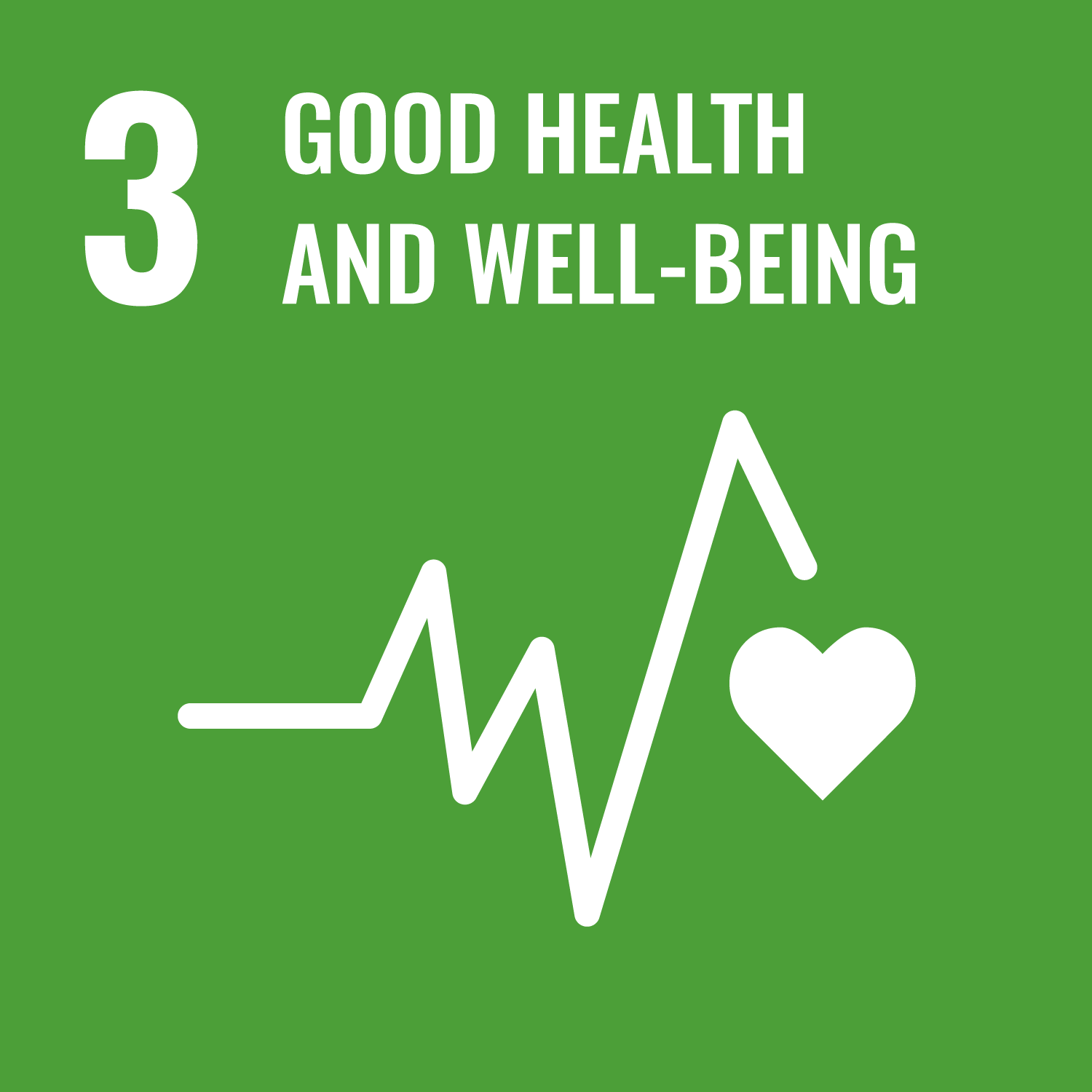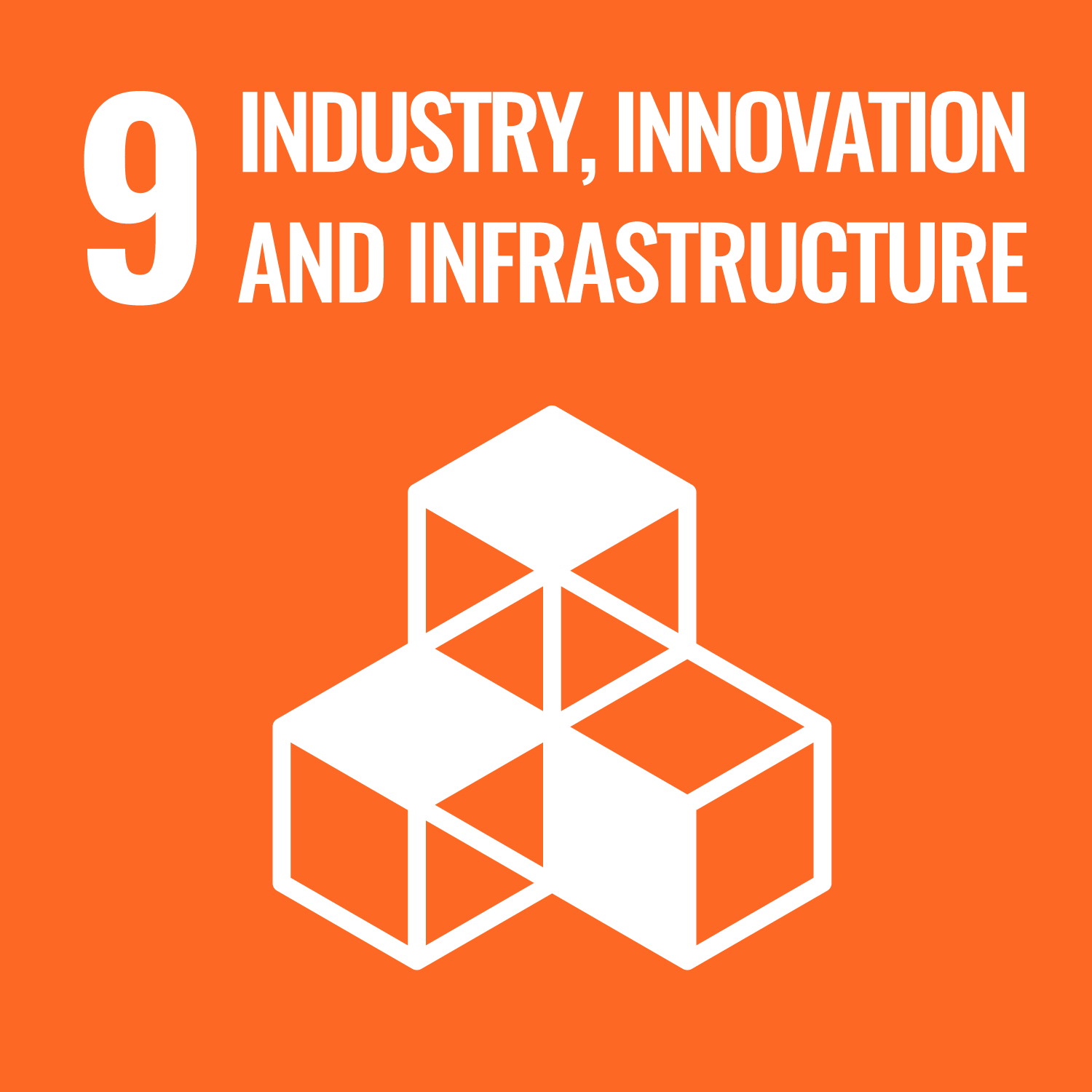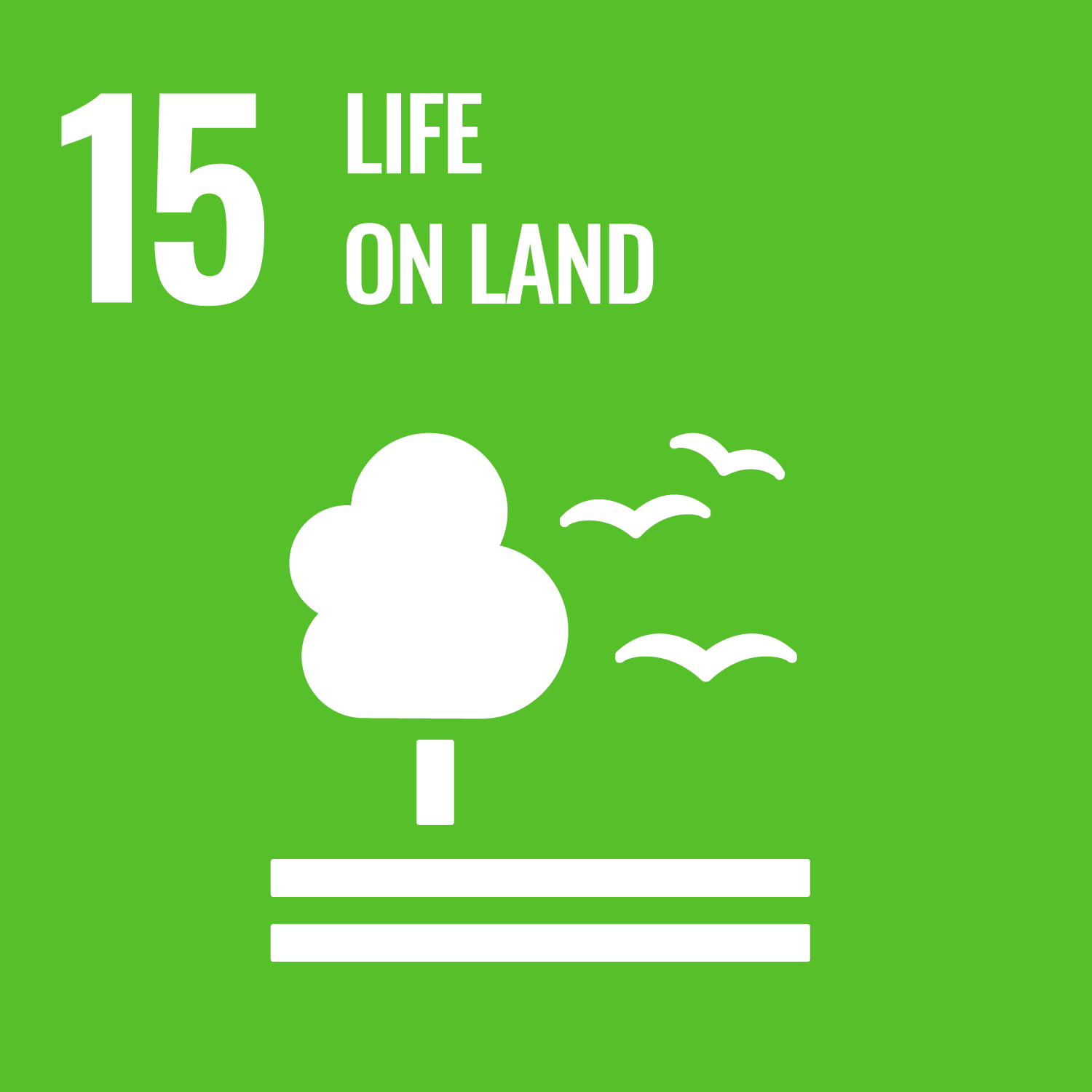This article demonstrates the transformative impact of IP-backed innovation in supporting the following Sustainable Development Goals:
BioTech: Revolutionizing Agriculture with Sustainable Biocontrol Solutions in Costa Rica
While occupying a fraction of the Earth’s surface, Costa Rica is home to nearly 6,5 percent of the planet’s total estimated species. BioTech, a biotechnology company co-founded by Lizzy Retana Villalobos, is developing natural and more sustainable alternatives to chemical pesticides. The company provides innovative services that safeguard the delicate ecological balance of soil, thereby promoting agricultural sustainability. BioTech is actively supporting the conservation and sustainable development of Costa Rica's extraordinary biodiversity.
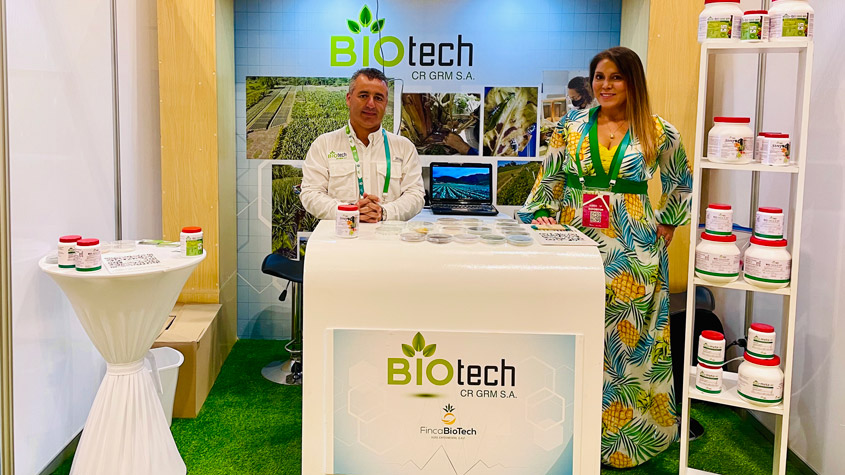
Costa Rica, which spans just 51,100 km², is one of the planet’s 20 most biodiverse countries. It is home to over 500,000 species, with insects alone counting slightly over 300,000 species. The country's commitment to preserving natural ecosystems is supported by a robust legal framework and numerous protected areas. This means that farmers need to find eco-friendly ways to maintain productivity and improve yields. This has created the space for biotech companies, like BioTech, to develop agricultural solutions that have minimal negative impact on the country's abundant biodiversity.
Founded in 2007, BioTech focuses on controlling plant diseases and ensuring sustainable food production. “I like to say that at BioTech, we are plant doctors,” says Retana Villalobos, co-founder of the company. “Instead of eradicating harmful microorganisms from the soil, we focus on equipping plants with the ability to combat these pathogens, thereby preserving soil health,” she explains.
BioTech harnesses the power of natural tools to combat pests and diseases associated with a variety of crops, including pineapples, bananas, coffee, palm, rice, melon, ornamentals, and flowers. "We develop products based on microorganisms, because plants metabolize better with the assistance of fungi or bacteria, rather than with chemical fertilizers alone. In this way, we help restore the natural balance of the soil,” explains Retana Villalobos. “BioTech’s products can help reduce the chemical load in the soil, thereby increasing soil resilience and health. We are currently working on solutions that could reduce fertilizer usage by up to 50 percent in the near future.”
Fungi for advancing sustainable agriculture
One of BioTech's products contains high concentrations of Trichoderma spp., a fungus used to combat soil-borne diseases, reduce agrochemical pollution, and enhance plant resilience and growth. “When Trichoderma spp. reaches the soil and encounters pathogenic fungi, it competes for space and prevents their growth. Trichoderma spp. can also parasitize other fungi through mycoparasitism, releasing metabolites that trigger the plant's defenses and immune system,” Retana Villalobos explains. “In pineapple plantations, the presence of Trichoderma spp. leads to a 10 to 12 percent increase in crop yield, supporting disease control and crop development.”
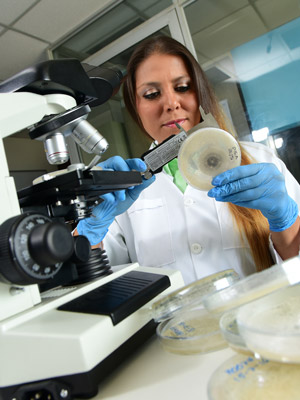
because plants metabolize better with the assistance
of fungi or bacteria, rather than only chemical fertilizers,"
says Retana Villalobos. (Photo: Courtesy of BioTech)
The company also prioritizes the well-being of pollinators, such as bees. "We ensure that our products do not cause harm to insect pollinators, which play a crucial role in 70 to 80 percent of the world's food production. It is essential that the products we use in the field do not threaten these important creatures," she says.
BioTech also offers agricultural producers specialized tests and analyses to enable them to gain a better understanding of the problems affecting their crops. “Being in the tropical region, Costa Rica boasts a wide range of bacteria and fungi, making any product developed here suitable for application anywhere. That's why we conduct research and development for third parties, covering everything from plant diagnostics and laboratory tests to pest control in crops, and the development of crop protection products,” Retana Villalobos says.
The company plans to expand its operations to other countries in the next five years. "We are working on exporting our products to countries in Central America, the Caribbean, and Mexico. We also have ambitions to enter European and American markets in the long term," says Retana Villalobos, highlighting their openness to forming alliances with partners worldwide.
Nurturing plant entrepreneurship
Retana Villalobos started her entrepreneurial journey when she was still in college. "From day one, our professors encouraged us to be entrepreneurs and start our own businesses," she recalls. Three years after graduating, Retana Villalobos teamed up with two colleagues — an agronomist and a biologist — to create BioTech. "We used to joke that this is my first marriage," she adds.
Although now in its 16th year of operation, getting the company off the ground was not easy. Securing financing and promoting environmental education in the agricultural sector were particularly challenging.
"Access to funding was one of our most significant barriers. We managed to finance our research gradually using our own capital. We have been growing with our own funds and some bank loans to purchase fields where we conduct our product testing and experimentation," explains Retana Villalobos, adding that the company was founded in the Business Incubation Center of the Institute of Technology of Costa Rica (TEC).
Raising awareness within the agricultural sector about the benefits of incorporating new technologies to their Integrated Pest Management (IPM), was a huge challenge as it involved changing the mindset of farmers. “We come from a time where people used chemical pesticides without hesitation, killing insects and microorganisms on the spot, but that can make the soil sterile,” Retana Villalobos explains. “Changing that mindset so that farmers adopt more sustainable and environmentally friendly practices, takes time and remains one of our most significant challenges,” she adds. In the face of this challenge, her self-belief and confidence in her business goals have been central to the company’s success. "Entrepreneurs need to believe in themselves. With belief, it becomes easier to envision and achieve our dreams,” she notes.
We come from a time where people used chemical pesticides without hesitation, killing insects and microorganisms on the spot, but that can make the soil sterile. Changing that mindset so that farmers adopt more sustainable and environmentally friendly practices, takes time and remains one of our most significant challenges.
Lizzy Retana Villalobos
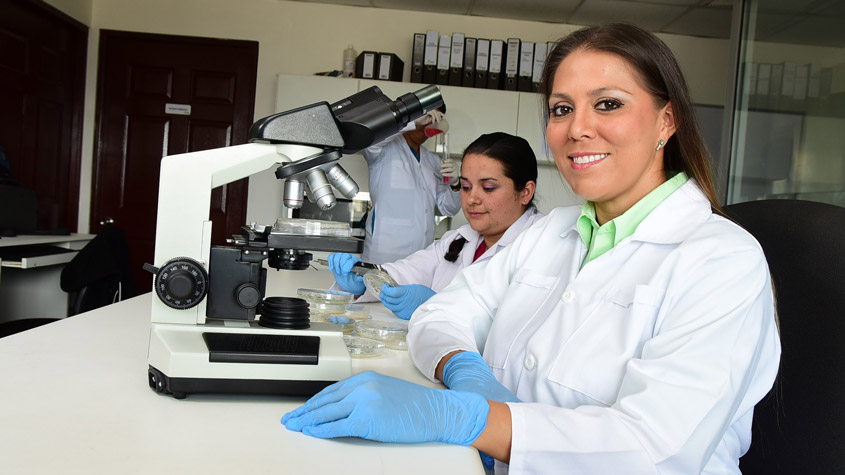
Protecting biotechnology investments with IP
Intellectual property (IP) rights are central to BioTech’s business model and its success. “The only way to protect investments in biotechnology is to have the IP equity in the company,” Retana Villalobos explains.
“Our IP is a key company asset. To maintain our expertise and protect our intellectual property, we are implementing a system that safeguards our confidential information and know-how and that will enable us to secure a patent to protect our finalized formulation(s). Over the years, we have also systematically registered trademarks as our product range has expanded. This has enabled us to build broader recognition of our brand. This protection adds value to our products,” says Retana Villalobos.
“Protecting our innovations and products with IP rights, allows us to strengthen our market position and remain competitive,” Retana Villalobos notes. “As we start expanding into new markets beyond Costa Rica, our IP strategy will play an even more important role in supporting BioTech’s success.”
